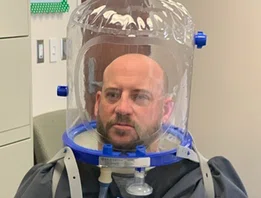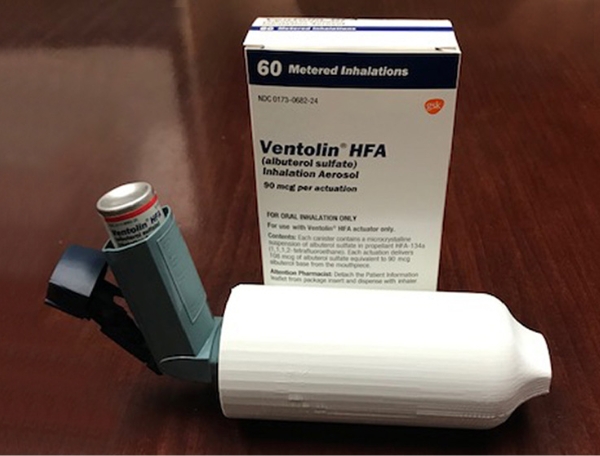


Outcomes research
From Hope to Healing
From Hope to Healing
The Houston Methodist multidisciplinary amyloid working group is driving amyloid awareness, empowering patients and moving those with cardiac amyloidosis from hope to healing.
The Houston Methodist multidisciplinary amyloid working group is driving amyloid awareness, empowering patients and moving those with cardiac amyloidosis from hope to healing.
Light-chain amyloidosis (AL) and transthyretin amyloidosis (TTR) are disorders characterized by the deposition and accumulation of fibrillary proteins (i.e., amyloid) in various organs, though both significantly affect the heart.
Amyloid deposits in the heart lead to thickening and stiffening of the muscle, making it struggle to pump blood. This often leads to heart failure. Historically, amyloidosis with extensive cardiac involvement (CA) has been associated with a dire prognosis—an average survival of approximately six months. To make matters worse, the systemic nature of AL often leads to the need for multi-organ transplants. There are only a handful of hospitals in the nation with cross disciplinary teams that can successfully perform heart and/or multi-organ transplants in CA patients. Thanks to these hospitals, which include Houston Methodist, there is more than just hope for better outcomes.
Share this story
Houston Methodist is one of the largest multiorgan transplant centers in the world, with one of the largest amyloid transplant programs in the country. When it was rare to do a combination heart and lung transplant, Houston Methodist performed two of the four in the U.S. With over a dozen years performing transplants in amyloid patients, Houston Methodist experts are uniquely positioned to serve these patients.
The CA that leads to heart failure must also be treated so that the transplanted heart remains healthy, which may require chemotherapy or bone marrow transplant in addition to organ transplantation.
Barry Trachtenberg, MD, cardiologist specializing in Heart Failure and Transplantation Cardiology, at the 2024 Bradley Z. Naifeh Amyloidosis Conference at Houston Methodist.
“A key aspect of our success is the multidisciplinary amyloid working group involving hematologists, bone marrow transplant specialists, hepatologists, nephrologists, pulmonologists, neurologists and orthopedic surgeons, who are involved in not only the transplant side, but the medical side of treating CA patients,” said Barry Trachtenberg, MD, a cardiologist specializing in Heart Failure and Transplantation Cardiology.
Their strategy has led to survival rates in amyloid patients on par with those of non-amyloid patients, which is no small achievement. Trachtenberg pointed out that while successful, the process by which they choose transplant-eligible CA patients is highly selective. “For every patient we're able to transplant, there are several that we’re not. Our experience, combined with more effective chemotherapies, results in a normal post-transplant lifespan for eligible patients,” said Trachtenberg.
To improve patient outcomes, early diagnosis is critical for CA patients. Because the symptoms of AL and TTR are so vague, patients often see four or five physicians over the course of a couple years before they are correctly diagnosed. The amyloid working group emphasizes research and education, so patients at least know the options that are available. Arvind Bhimaraj, MD, Medical Director of the Advanced Heart Failure, Mechanical Assist Devices and Heart Transplant Program, advocates for patient awareness. “I always tell my patients to be proactive, to learn about amyloidosis and the treatments available. Increasing awareness and empowering patients is the driving force behind the annual Bradley Z. Naifeh Amyloidosis Conference hosted at Houston Methodist,” said Bhimaraj. The conference—features a faculty panel from various disciplines promoting awareness and providing comprehensive information on amyloidosis to attendees.
Arvind Bhimaraj, MD, Medical Director of the Advanced Heart Failure, Mechanical Assist Devices and Heart Transplant Program, speaking at the 2024 Bradley Z. Naifeh Amyloidosis Conference
at Houston Methodist.
A key aspect of our success is the multidisciplinary amyloid working group involving cardiologists, hematologists, bone marrow transplant specialists, hepatologists, nephrologists, pulmonologists, neurologists and orthopedic surgeons, who are involved in not only the transplant side, but the medical side of treating patients with cardiac involvement.
Barry Trachtenberg, MD
cardiologist specializing in Heart Failure and Transplantation Cardiology
Recent advances in therapeutics have made early diagnosis even more important. Amyloidosis must be recognized and categorized appropriately, early enough so individuals can receive access to appropriate care. Experts are now taking a closer look at patients with unexplained orthopedic issues and neuropathy, especially carpal tunnel syndrome. “In patients of a certain age, we are biopsying those tissues to test for amyloids. It allows us to diagnose Al and TTR before they have heart failure and before they need transplants,” said Bhimaraj.
A. Osama Gaber, MD, John F., Jr. and Carolyn Bookout Presidential Distinguished Chair in Surgery, Program Director, Transplant Surgery Fellowship, speaking at the 2024 Bradley Z. Naifeh Amyloidosis Conference at Houston Methodist.
Houston Methodist Amyloidosis Working Group with Conference Speakers.
Bhimaraj emphasized that their successes in this field were made possible through support of the J.C. Walter Jr. Transplant Center at Houston Methodist, as well as key physicians such as A. Osama Gaber, MD, John F., Jr. and Carolyn Bookout Presidential Distinguished Chair in Surgery and Program Director, Transplant Surgery Fellowship, who championed their efforts early on. Through collaboration and dedication, the Houston Methodist multidisciplinary amyloid working group is driving amyloid awareness, empowering patients and moving those with CA from hope to healing.
May 2024







